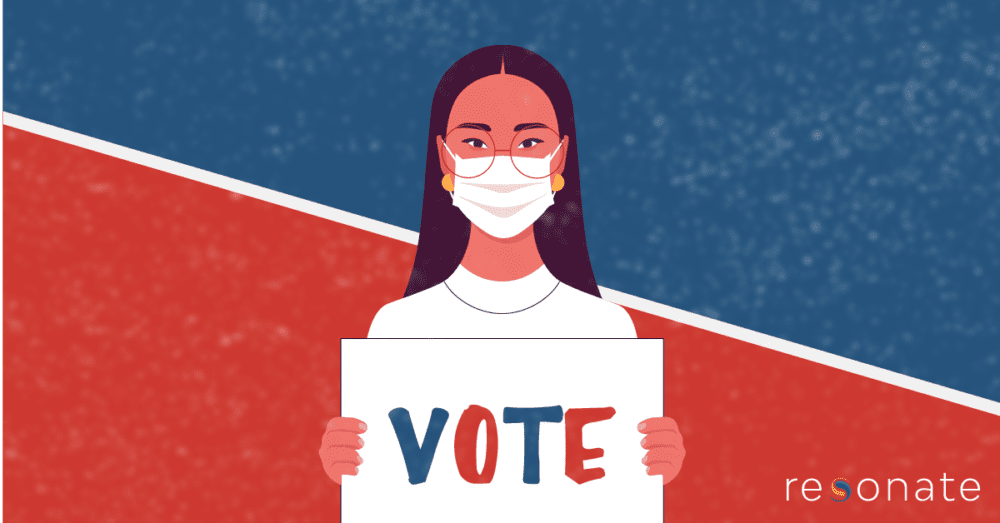By Emme Tran | Junior Editor

Amidst major social and environmental discord, determining the leader of the United States of America could change the entire state of the country. It is imperative that all eligible citizens participate in this year’s presidential election when given the opportunity.
Due to COVID-19, citizens will be casting their votes through mail-in ballots up until Election Day on Nov. 3. According to The Wall Street Journal, this year’s candidates, Donald J. Trump and Joe Biden, have taken exceedingly different stands on issues such as taxes, immigration, and health care. These subjects, depending on the elected candidate, will affect millions of people residing in the U.S.
Voting heavily affects the country’s policies. When someone does not vote, their voice is not heard, putting a stop to functioning democracy.
According to The Washington Post, about 100 million eligible voters did not cast a ballot in 2016, which means 43 percent of U.S. citizens that did not stand up for their beliefs. Not only are individual voices not heard, but entire disenfranchised groups of people cannot be assisted through voting.
This coming election directly affects America’s youth with policies regarding the environment, college debt, and minimum wage. While those under the legal voting age make up roughly 22.3 percent of the total population, according to the U.S. Census, they cannot partake in the voting process. That is why it is so important for those who can vote to take advantage of this privilege.
While a single vote may seem inconsequential, every single ballot is significant— especially concerning the Electoral College. Every election year, the presidential candidate that wins the popular vote in a single state usually garners that state’s votes in the Electoral College. The amount of electoral votes per state depends on the state’s total number of Representatives and Senators in Congress.
For instance, California has a total of 55 electoral votes, making up 20 percent of the 270 votes needed to secure the presidency, according to KQED. There have been many instances of elections being won through the Electoral College alone.
In 2016, Trump went against Hillary Clinton for presidency, and while Clinton garnered nearly three million more votes nationwide, Trump won the election by 74 electoral votes, according to The New York Times.
If the swing states, states that could be won by either the Democratic or Republican candidate, or even just the state of Texas had cast their electoral votes in favor of Clinton, she would have won the previous election. Thus, individual votes are significant because the popular vote in a single state, influences the electoral votes and can determine the outcome of the presidential election.
Participating in the presidential election is consequential to the future of the U.S., and all eligible voters should cast their votes. This year, individual votes will determine the advancement or the decline of the country.

